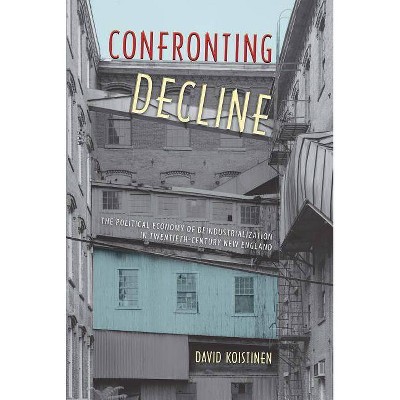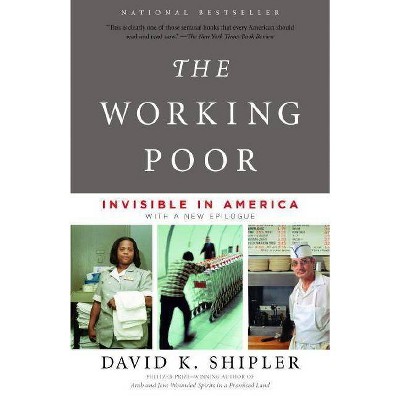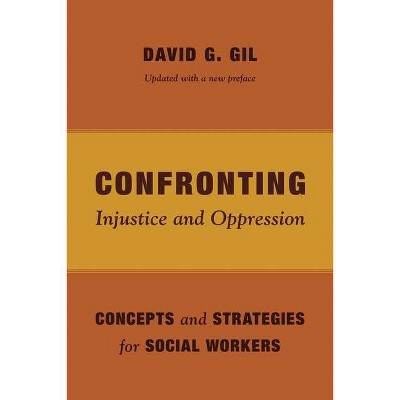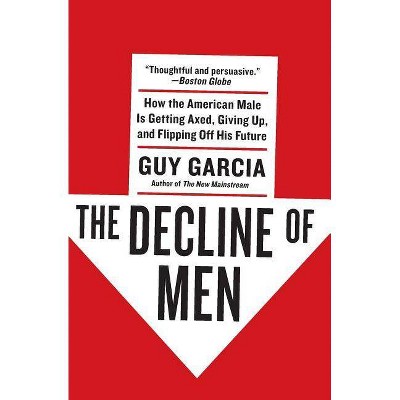Confronting Decline - (Working in the Americas) by David Koistinen (Paperback)

Similar Products
Products of same category from the store
AllProduct info
<p/><br></br><p><b> Book Synopsis </b></p></br></br><p>"Koistinen puts the 'political' back in political economy in this fascinating account of New England's twentieth-century industrial erosion. First-rate research and sound judgments make this study essential reading."--Philip Scranton, Rutgers University-Camden</p><p>"Well-organized and clearly written, <i>Confronting Decline</i> looks at one community to understand a process that has become truly national."--David Stebenne, Ohio State University</p><p>"Koistinen's important book makes clear that many industrial cities and regions began to decline as early as the 1920s."--Alan Brinkley, Columbia University</p><p>"Sheds new light on a complex system of enterprise that sometimes blurs, and occasionally overrides, the distinctions of private and public, as well as those of locality, state, region, and nation. In so doing, it extends and deepens the insights of previous scholars of the American political economy."--Robert M. Collins, University of Missouri</p><p>The rise of the United States to a position of global leadership and power rested initially on the outcome of the Industrial Revolution. Yet as early as the 1920s, important American industries were in decline in the places where they had originally flourished. <p/> The decline of traditional manufacturing--deindustrialization--has been one of the most significant aspects of the restructuring of the American economy. In this volume, David Koistinen examines the demise of the textile industry in New England from the 1920s through the 1980s to better understand the impact of industrial decline. Focusing on policy responses to deindustrialization at the state, regional, and federal levels, he offers an in-depth look at the process of industrial decline over time and shows how this pattern repeats itself throughout the country and the world.</p><p>A volume in the series Working in the Americas, edited by Richard Greenwald and Timothy J. Minchin<br> </p><p/><br></br><p><b> Review Quotes </b></p></br></br><br>"[A] finely researched book."--<b><i>American Historical Review</i></b><br><br><br>"Challenges commonly held ideas about when and where deindustrialization began, and argues that contemporary responses to industrial decline have a much longer history than scholars have recognized."--<b>EH-Net</b><br><br><br>"Koistinen traces the post-World War I decline of cotton textiles, triggered largely by low-cost southern competition. . . . He incorporates the voices of business leaders, policymakers, and workers themselves."--<b><i>Business History Review</i></b><br><br><br>"Reminds us, first, that history continues far beyond the drama of plant closings, and . . . that looking through a longer lens allows us to view important connections that had remained hidden. Second, as scholars are increasingly exploring firms and the larger business community as historical actors, he demonstrates the power of a political economic analysis."--<b><i>Journal of American Studies</i></b><br><br><br>"Superbly demonstrates that efforts by public and private groups to counter deindustrialization had little, if any, impact."--<b><i>Economic History Review</i></b><br><br><br>"Will grow increasingly relevant as globalization and deindustrialization continue to reshape the American economy in the twenty-first century."--<b><i>Journal of American History</i></b><br><br><p/><br></br><p><b> About the Author </b></p></br></br><b>David Koistinen</b> is associate professor of history at William Paterson University.
Price History
Price Archive shows prices from various stores, lets you see history and find the cheapest. There is no actual sale on the website. For all support, inquiry and suggestion messages communication@pricearchive.us




















